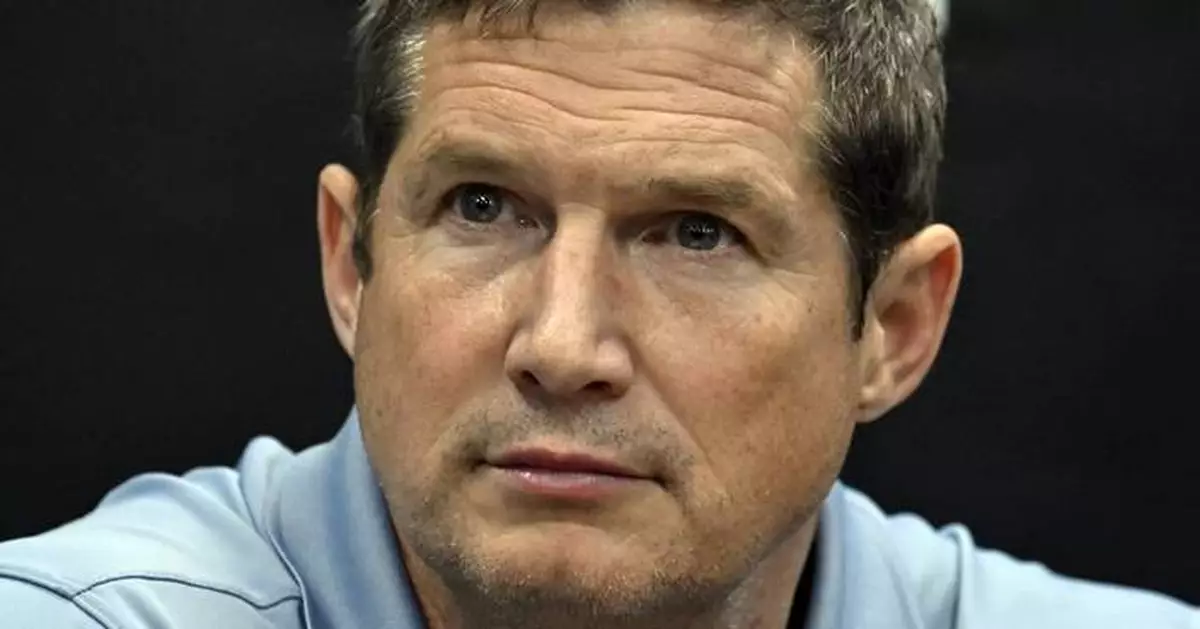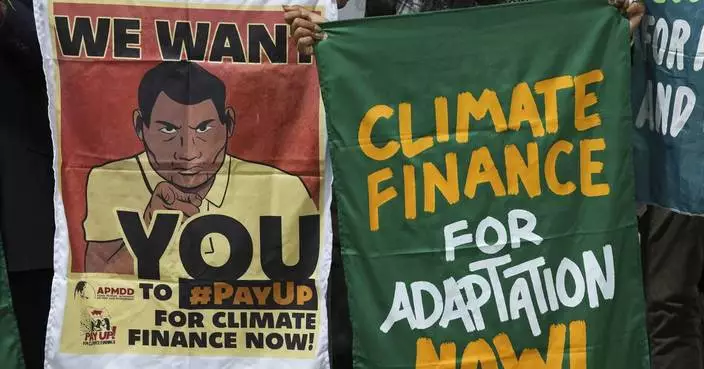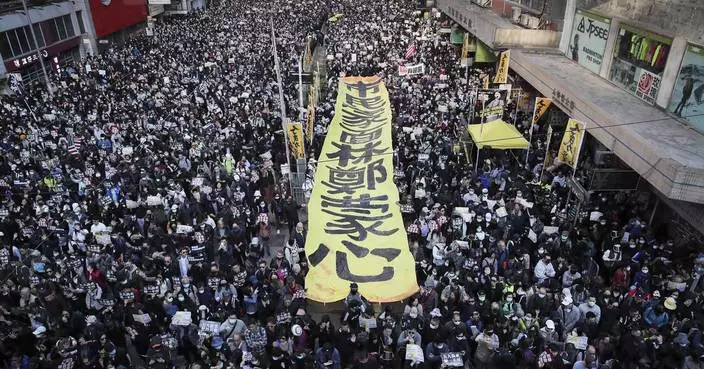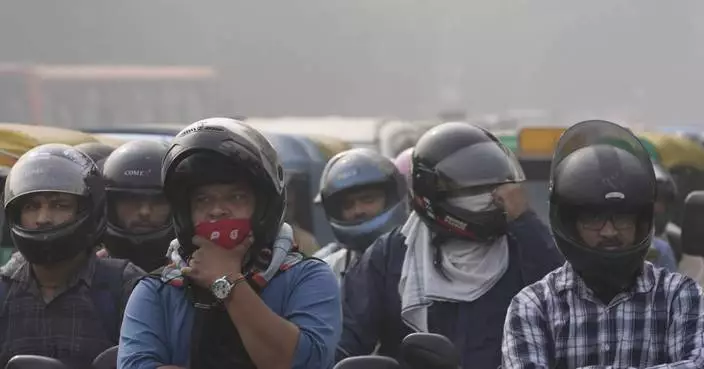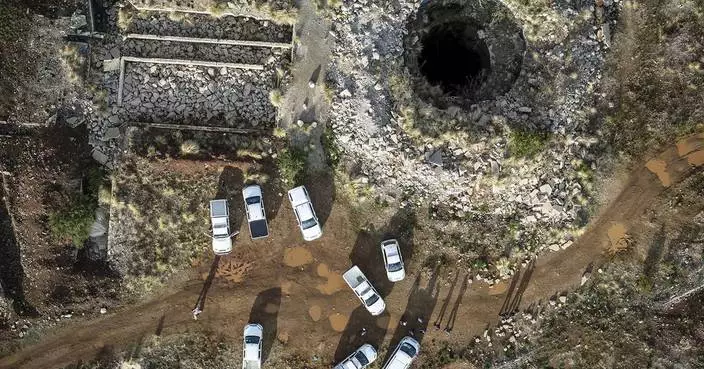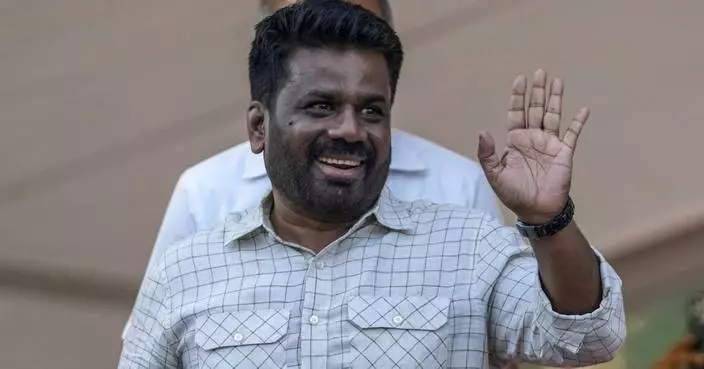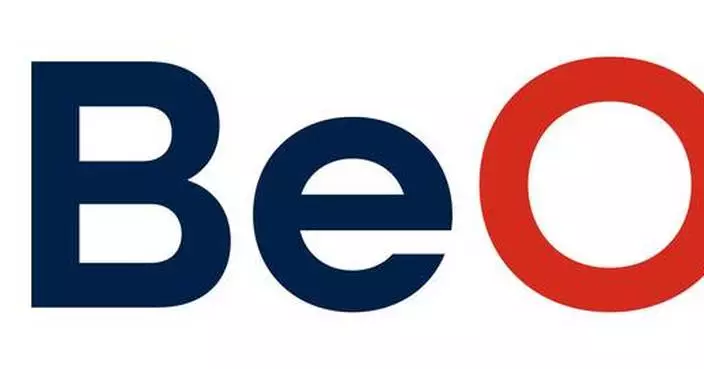The Atlanta Dream hired longtime Florida Gulf Coast coach Karl Smesko to lead the team Wednesday.
Smesko built Florida Gulf Coast into a perennial NCAA Tournament team and has the third highest winning percentage (.829) in women's college basketball over his 23 years at the school. The Eagles have been one of the top 3-point shooting teams in the country yearly. They knocked down 300 or more 3-pointers in 15 straight seasons, including setting the NCAA record with 431 in 2018.
“Karl is a proven leader with a history of developing his players and creating a winning culture,” Dream GM Dan Padover said. "His fast-paced, innovative style of play will be attractive to our players and fans alike. We are excited to have Karl bring his incredible basketball IQ to the Dream.”
The 54-year-old Smesko will join the franchise later this month.
Atlanta went 15-25 this year and had to win its last few games to qualify for the playoffs. There’s a strong young nucleus with Rhyne Howard and Allisha Gray leading the way along with veteran center Tina Charles. The Dream haven’t had a winning record since the 2018 season.
“This is an exciting moment for our fans, the city of Atlanta, and the entire Dream organization,” Atlanta Dream owner Larry Gottesdiener said. “A great basketball mind is coming to our city. Karl’s passion for and commitment to women’s basketball bring out the best in everyone around him. I am confident we have found the right leader to take our organization to the next level.”
The Dream fired former coach Tanisha Wright last month after Atlanta fell in the opening round of the playoffs for the second straight year.
Atlanta was one of a record seven WNBA coaching openings this offseason. Three now have been filled with Stephanie White going to Indiana and Ty Marsh taking over in Chicago. Washington, Dallas, Los Angeles and Connecticut still have vacancies.
AP WNBA: https://apnews.com/hub/wnba-basketball
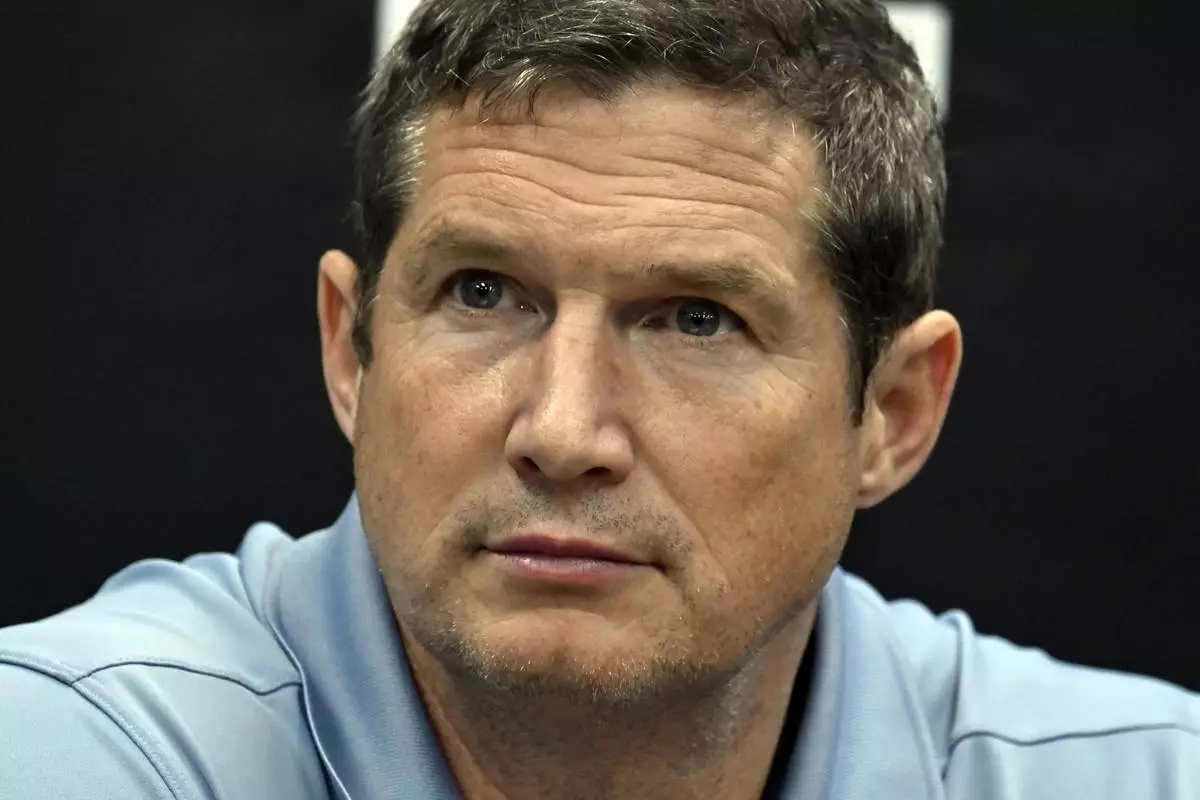
FILE - Florida Gulf Coast coach Karl Smesko talks during a news conference after an NCAA college basketball game in the Gulf Coast Showcase, Nov. 25, 2023, in Estero, Fla. (AP Photo/Steve Nesius, file)
DUBAI, United Arab Emirates (AP) — The head of the International Atomic Energy Agency warned Thursday that the “space for negotiation and diplomacy ... is getting smaller” over Iran's advancing atomic program as wars in the Mideast rage on and as President Donald Trump will return to the White House.
Rafael Mariano Grossi of the IAEA was visiting Tehran in an effort to restore his inspectors' access to Iran's program and answer still-outstanding questions over it, as he has on previous trips with limited success since Trump unilaterally withdrew the U.S. from the Islamic Republic's nuclear deal with world powers.
However, the remarks from both Grossi and his Iranian counterpart at a news conference suggested sizeable gaps still exist, even as some countries are pushing to take action against Iran at an upcoming IAEA Board of Governors' meeting.
“We know that it is indispensable to get, at this point of time, to get some concrete, tangible and visible results that will indicate that this joint work is improving (the) situation, is bringing clarification to things and in a general sense it is moving us away from conflict and ultimately war," Grossi said.
Since the deal’s collapse in 2018, Iran has abandoned all limits on its program, and enriches uranium to up to 60% purity — near weapons-grade levels of 90%.
Surveillance cameras installed by the IAEA have been disrupted, while Iran has barred some of the Vienna-based agency’s most experienced inspectors. Iranian officials also have increasingly threatened that they could pursue atomic weapons, something the West and the IAEA has been worried about for years since Tehran abandoned an organized weapons program in 2003.
Speaking at a news conference with Mohammad Eslami of the Atomic Energy Organization of Iran, Grossi stressed that while the IAEA and Iran continued to negotiate, time was not necessarily on their side.
“The fact that international tensions and regional tensions do exist — this shows that the space for negotiation and diplomacy is not getting bigger, it is getting smaller,” Grossi said.
Before appearing with Eslami, Grossi met with Iranian Foreign Minister Abbas Araghchi, who later wrote on the social platform X that “differences can be resolved through cooperation and dialogue.” However, he warned Tehran was “NOT ready to negotiate under pressure and intimidation.”
Some politicians have even suggested Iran abandon the Treaty on the Nonproliferation of Nuclear Weapons, known as the NPT, and pursue the bomb. Araghchi referred to Iran as “a committed member of NPT," though Eslami in his remarks warned Iran could retaliate if challenged at the upcoming IAEA Board of Governors' meeting. Grossi acknowledged some nations were considering taking action against Iran.
“We have repeatedly said any resolution seeking to intervene in the Islamic Republic of Iran’s nuclear affairs will be definitely followed by immediate reciprocal steps and we will not allow them to (exert) this kind of pressure," Eslami said.
Journalists at the news conference, as well as Eslami, criticized Israel for its longtime sabotage and assassination campaign targeting Iran's nuclear program. Some noted Israeli officials had threatened Iran's nuclear sites as targets for potential retaliation as Iran and Israel trade direct attacks amid the ongoing Israel-Hamas war in the Gaza Strip and Israel's ground and air offensive in Lebanon.
“The answer is in what we do here, what we, the IAEA, and Iran can do in terms of solving the questions at hand," Grossi said, describing “a situation of tension” with Iran's nuclear program at its center.
“I am here to work with Iran, (to) try to find adequate solutions to ease tensions, to move forward. This is my target. This is my concern. And I am confident that we are going to be able to do it," he said.
But as the two men ended the news conference to shouted questions from journalists, neither had offered any sign a breakthrough was imminent.
Associated Press writer Nasser Karimi in Tehran, Iran, contributed to this report.
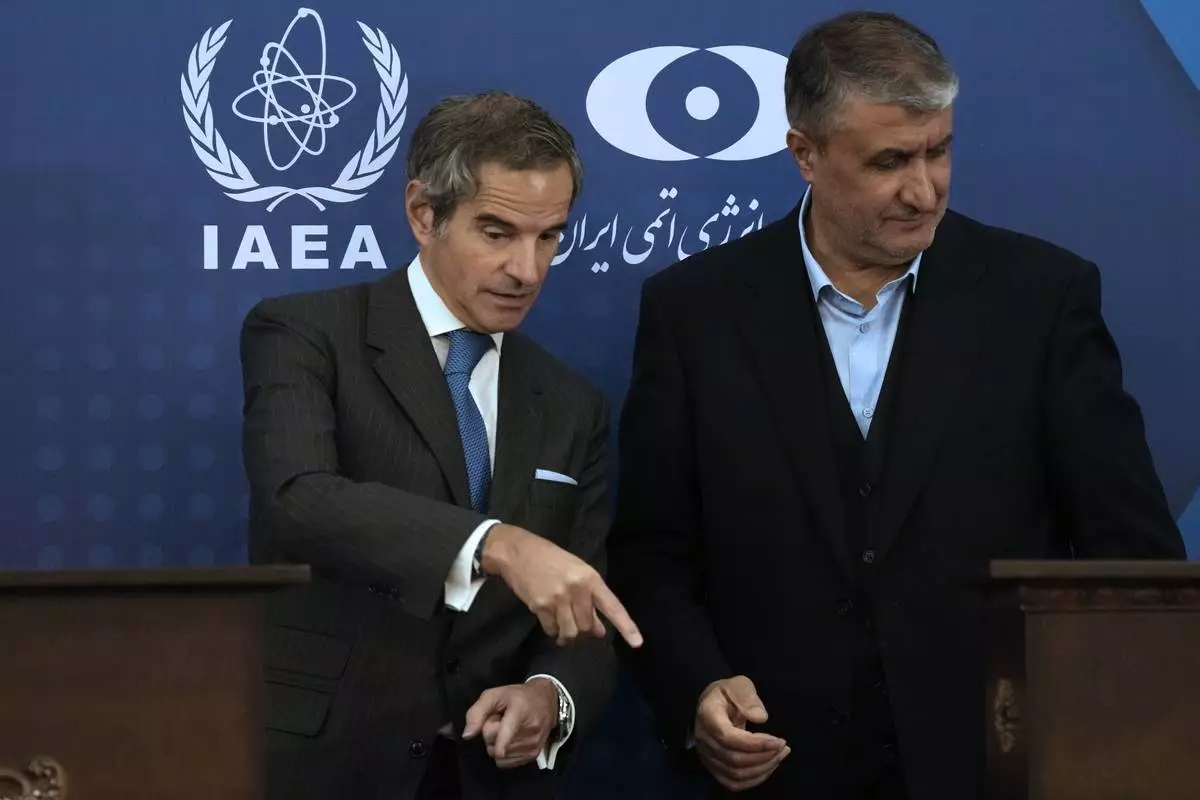
International Atomic Energy Agency, IAEA, Director General Rafael Mariano Grossi, left, gestures at the conclusion of his joint press conference with Iran's Atomic Energy Organization head Mohammad Eslami in Tehran, Iran, Thursday, Nov. 14, 2024. (AP Photo/Vahid Salemi)
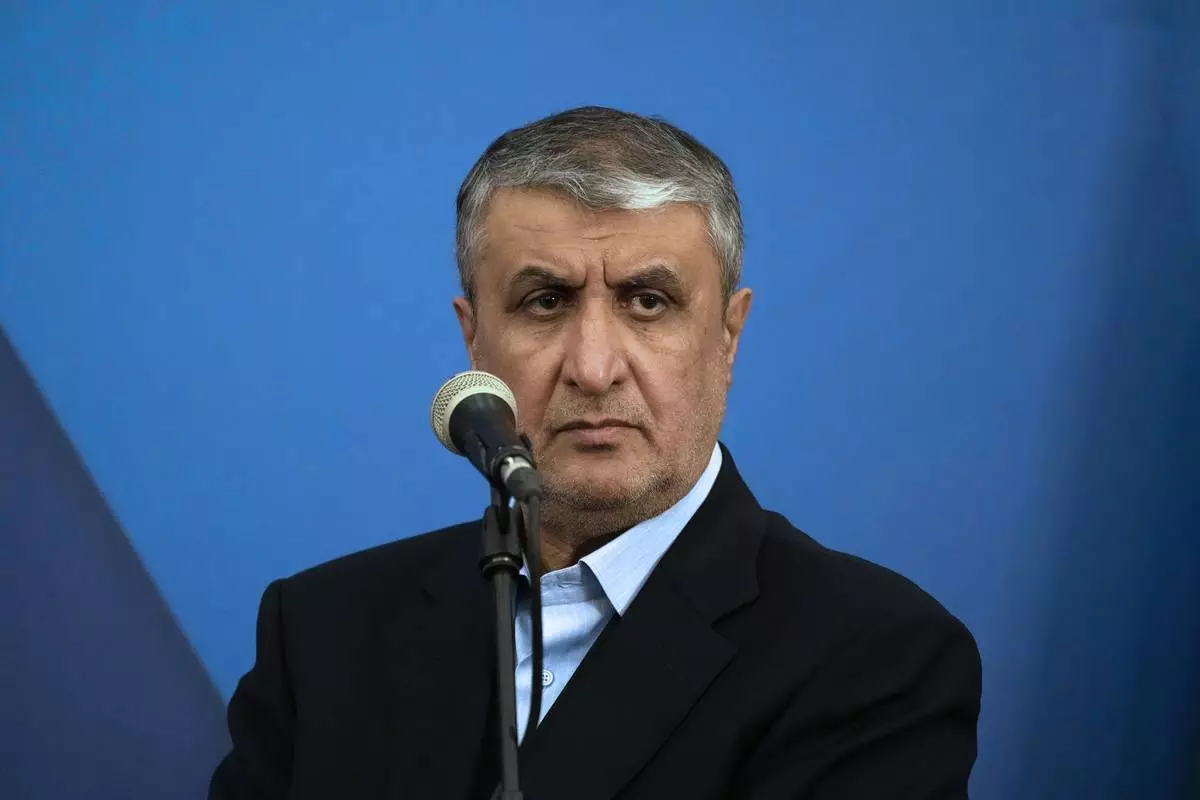
Head of Atomic Energy Organization of Iran Mohammad Eslami listens during his joint press conference with International Atomic Energy Agency (IAEA) Director General Rafael Mariano Grossi in Tehran, Iran, Thursday, Nov. 14, 2024. (AP Photo/Vahid Salemi)
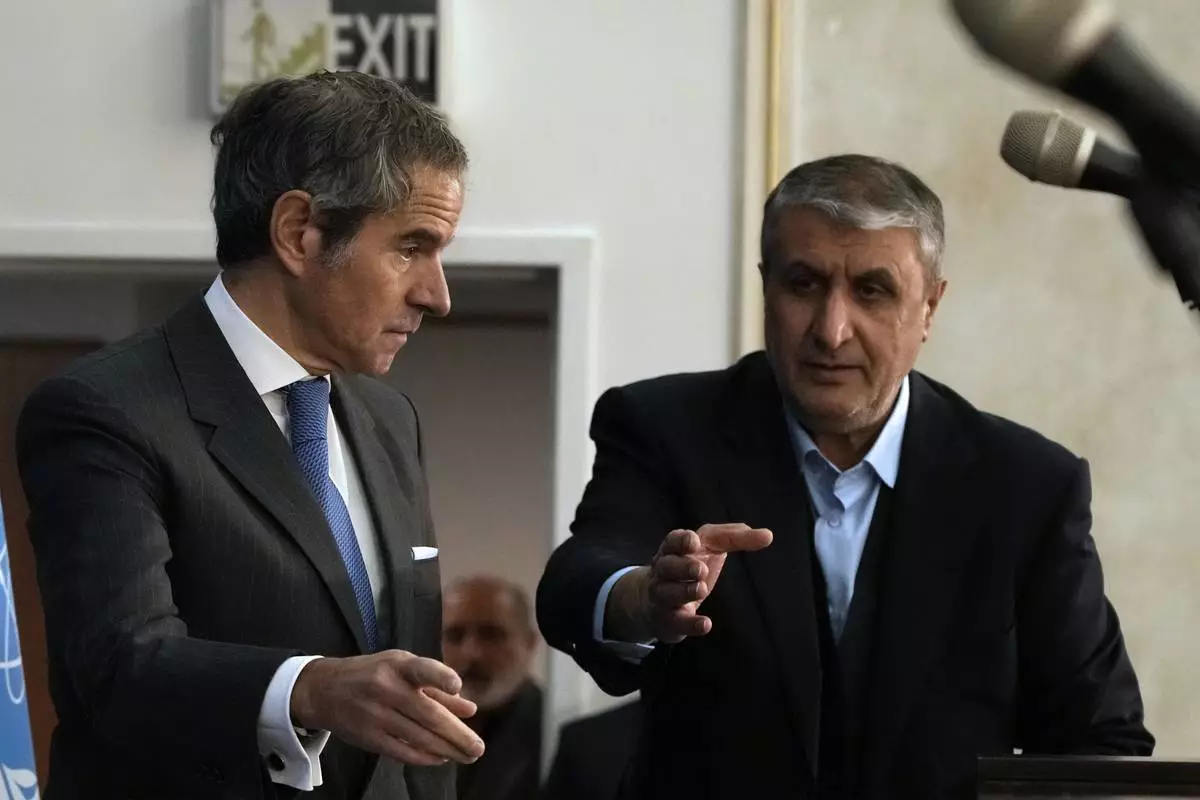
International Atomic Energy Agency, IAEA, Director General Rafael Mariano Grossi, left, and head of Atomic Energy Organization of Iran Mohammad Eslami gesture as they arrive for a press conference in Tehran, Iran, Thursday, Nov. 14, 2024. (AP Photo/Vahid Salemi)
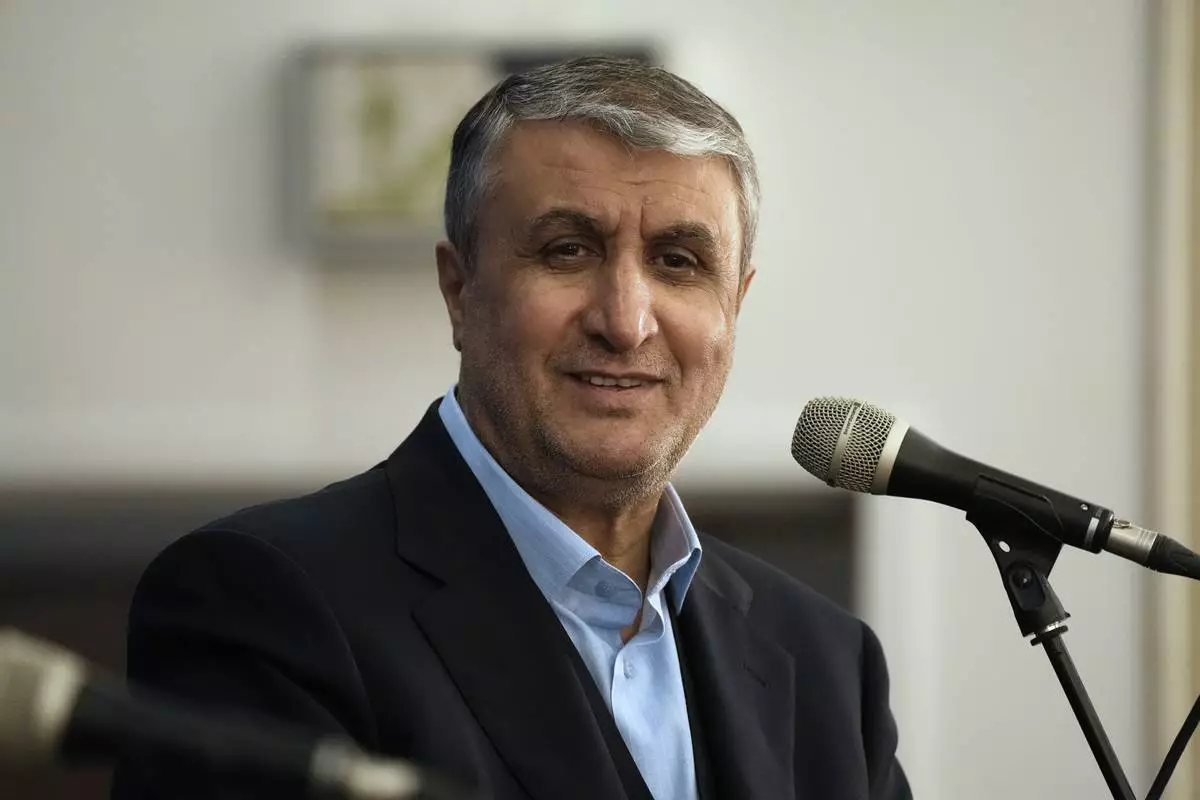
Head of Atomic Energy Organization of Iran Mohammad Eslami listens during his joint press conference with International Atomic Energy Agency (IAEA) Director General Rafael Mariano Grossi in Tehran, Iran, Thursday, Nov. 14, 2024. (AP Photo/Vahid Salemi)
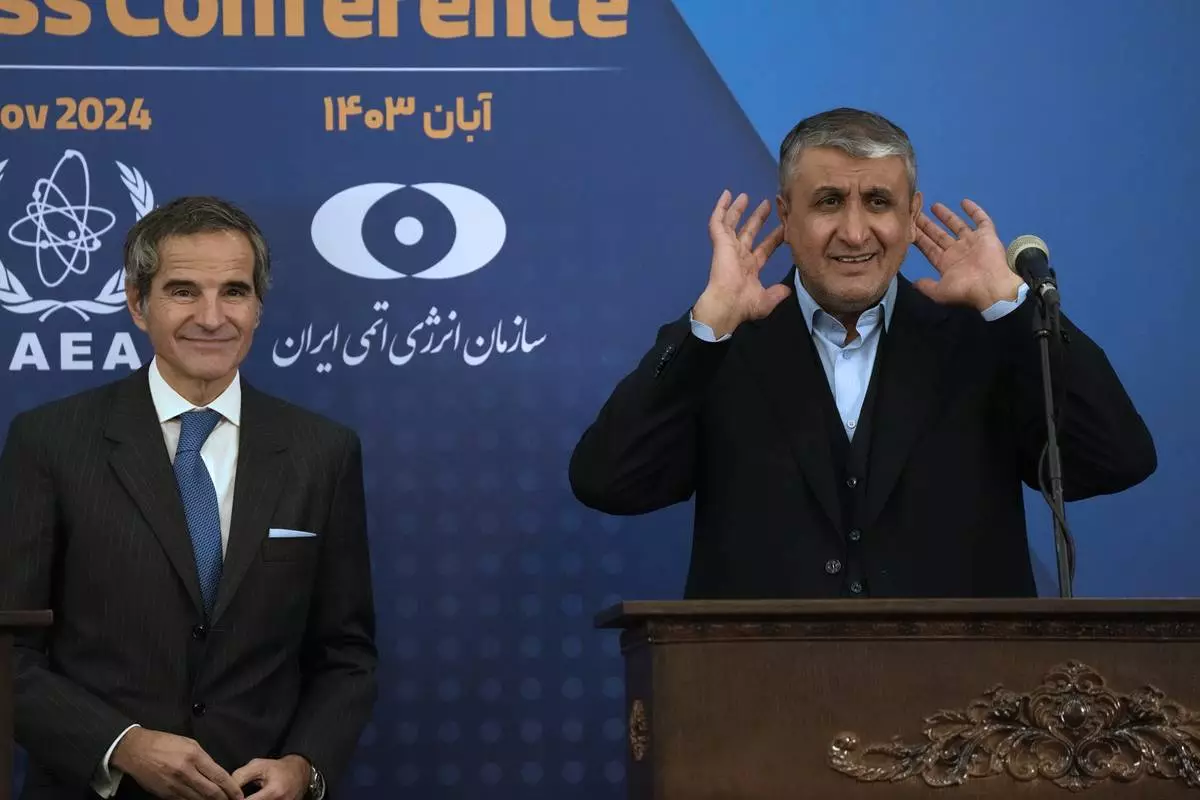
Head of Atomic Energy Organization of Iran Mohammad Eslami, right, tries to listen to a journalist at the conclusion of his joint press conference with International Atomic Energy Agency (IAEA) Director General Rafael Mariano Grossi in Tehran, Iran, Thursday, Nov. 14, 2024. (AP Photo/Vahid Salemi)
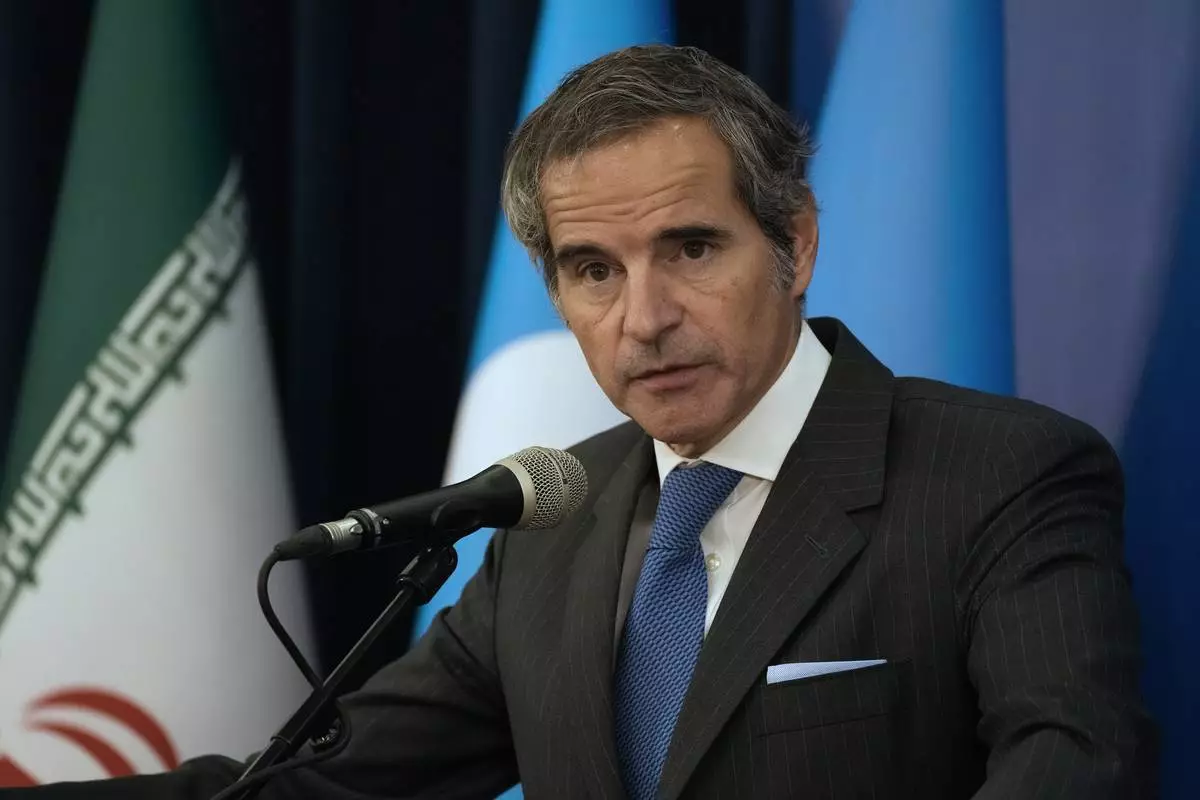
International Atomic Energy Agency (IAEA) Director General Rafael Mariano Grossi speaks during a joint press briefing with head of Atomic Energy Organization of Iran Mohammad Eslami in Tehran, Iran, Thursday, Nov. 14, 2024. (AP Photo/Vahid Salemi)
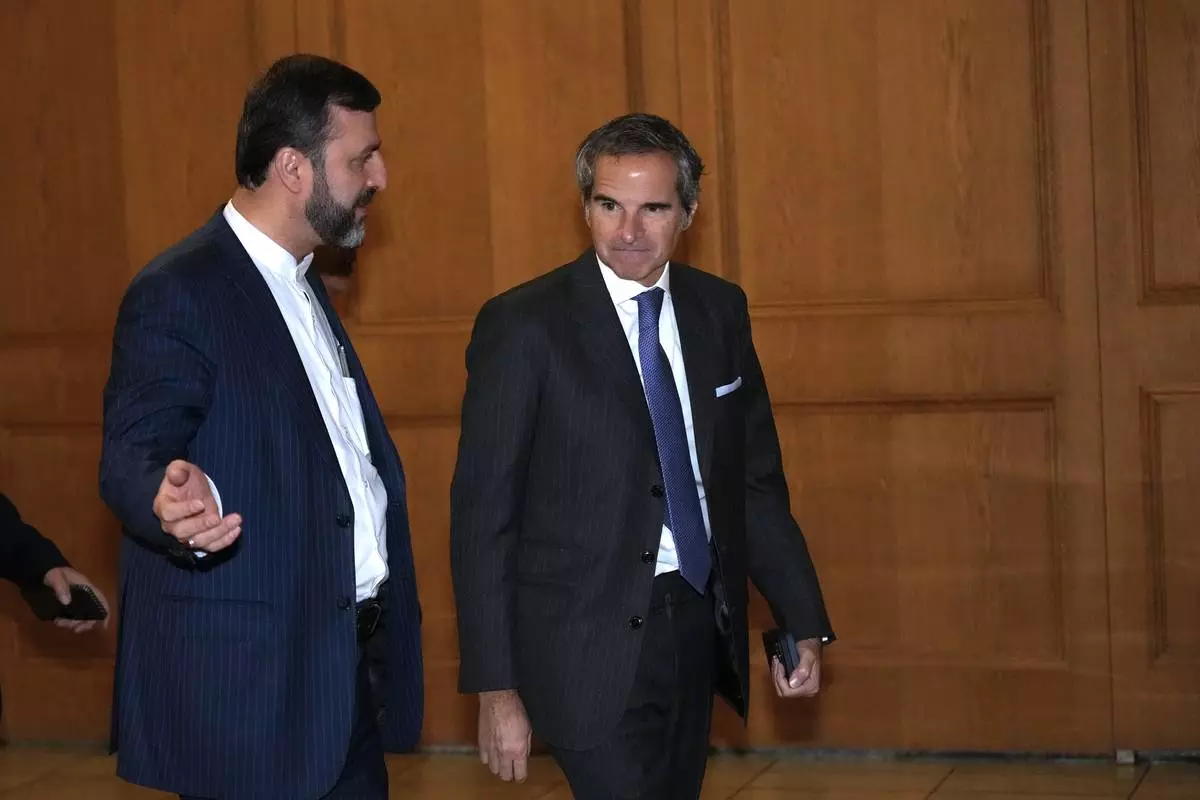
CORRECTS TO INTERNATIONAL ATOMIC ENERGY AGENCY - International Atomic Energy Agency (IAEA) Director General Rafael Mariano Grossi, right, arrives for a meeting with Iranian Foreign Minister Abbas Araghchi as he is accompanied by Deputy Foreign Minister Kazem Gharib Abadi, in Tehran, Iran, Thursday, Nov. 14, 2024. (AP Photo/Vahid Salemi)
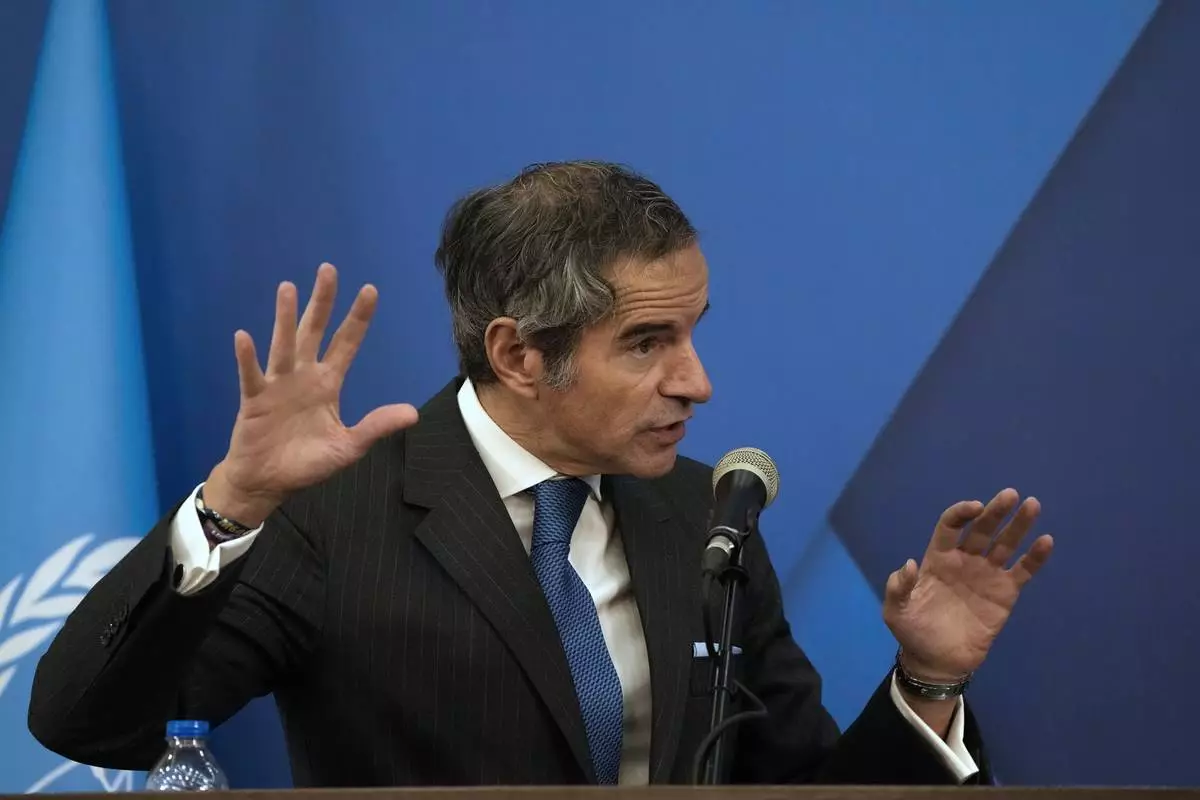
International Atomic Energy Agency, IAEA, Director General Rafael Mariano Grossi speaks during a joint press briefing with Iran's Atomic Energy Organization head Mohammad Eslami in Tehran, Iran, Thursday, Nov. 14, 2024. (AP Photo/Vahid Salemi)
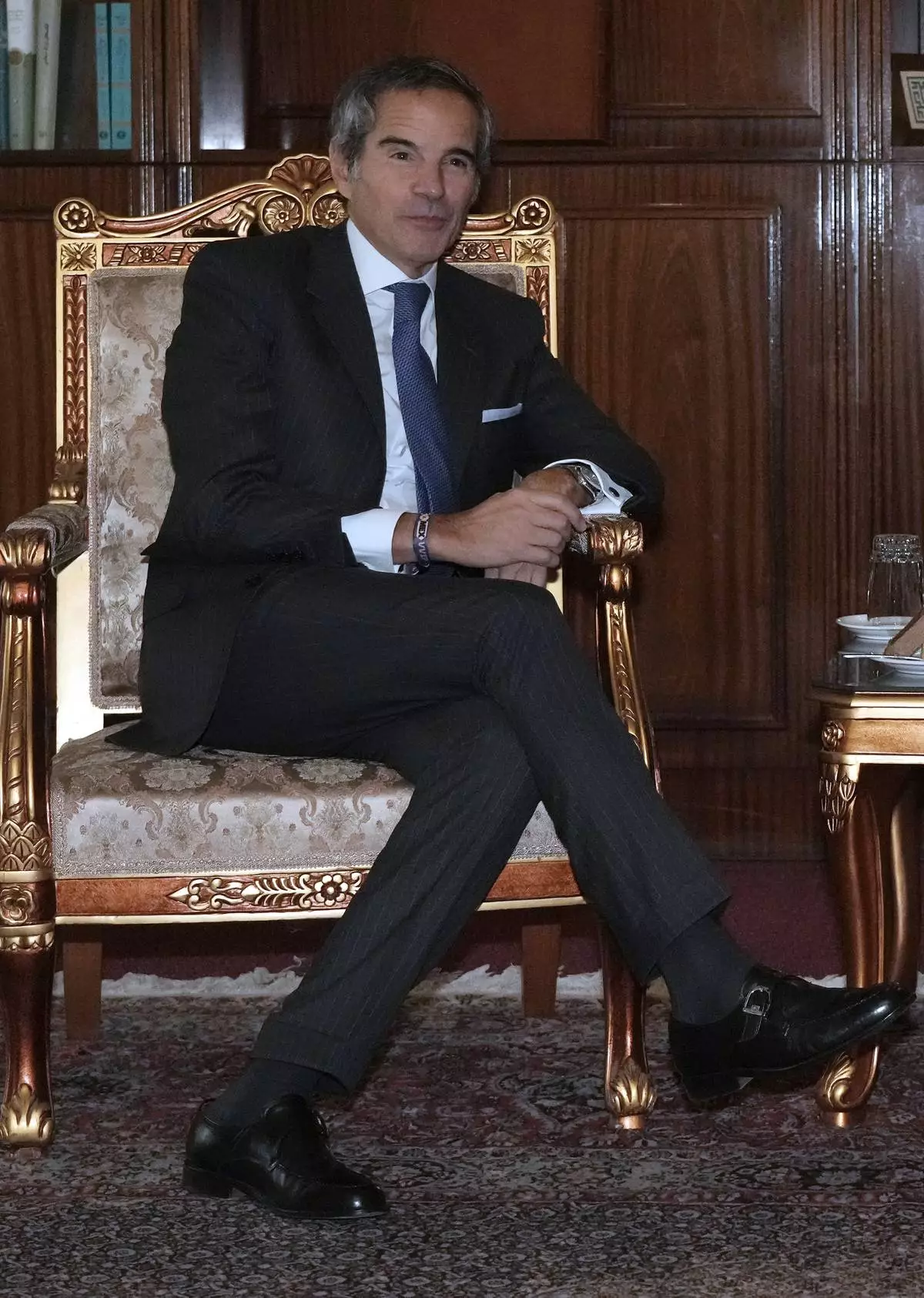
International Atomic Energy Agency (IAEA) Director General Rafael Mariano Grossi sits during a meeting with Iranian Foreign Minister Abbas Araghchi in Tehran, Iran, Thursday, Nov. 14, 2024. (AP Photo/Vahid Salemi)
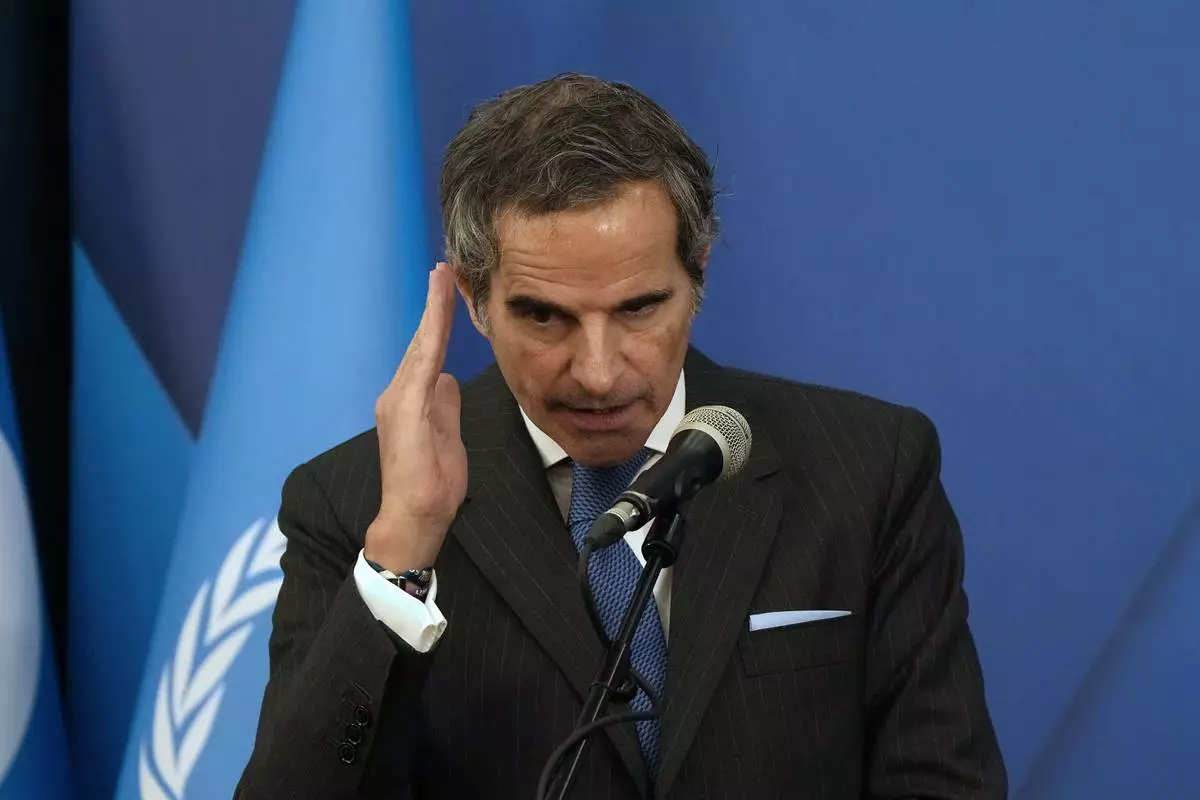
International Atomic Energy Agency, IAEA, Director General Rafael Mariano Grossi speaks during a joint press briefing with Iran's Atomic Energy Organization head Mohammad Eslami in Tehran, Iran, Thursday, Nov. 14, 2024. (AP Photo/Vahid Salemi)
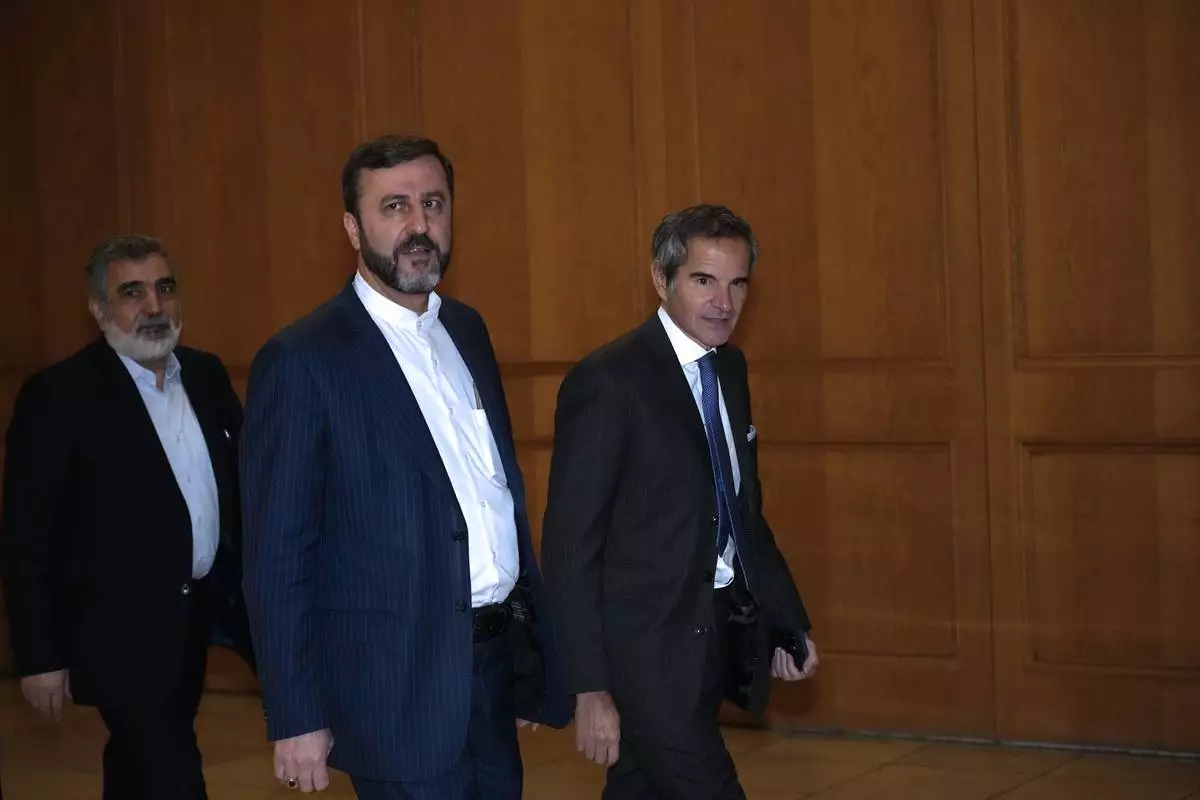
International Atomic Energy Agency (IAEA) Director General Rafael Mariano Grossi, right, arrives for a meeting with Iranian Foreign Minister Abbas Araghchi, unseen, as he is accompanied by Deputy Foreign Minister Kazem Gharib Abadi, second right, and Deputy Chief of Atomic Energy Organization of Iran, Behrouz Kamalvandi in Tehran, Iran, Thursday, Nov. 14, 2024. (AP Photo/Vahid Salemi)
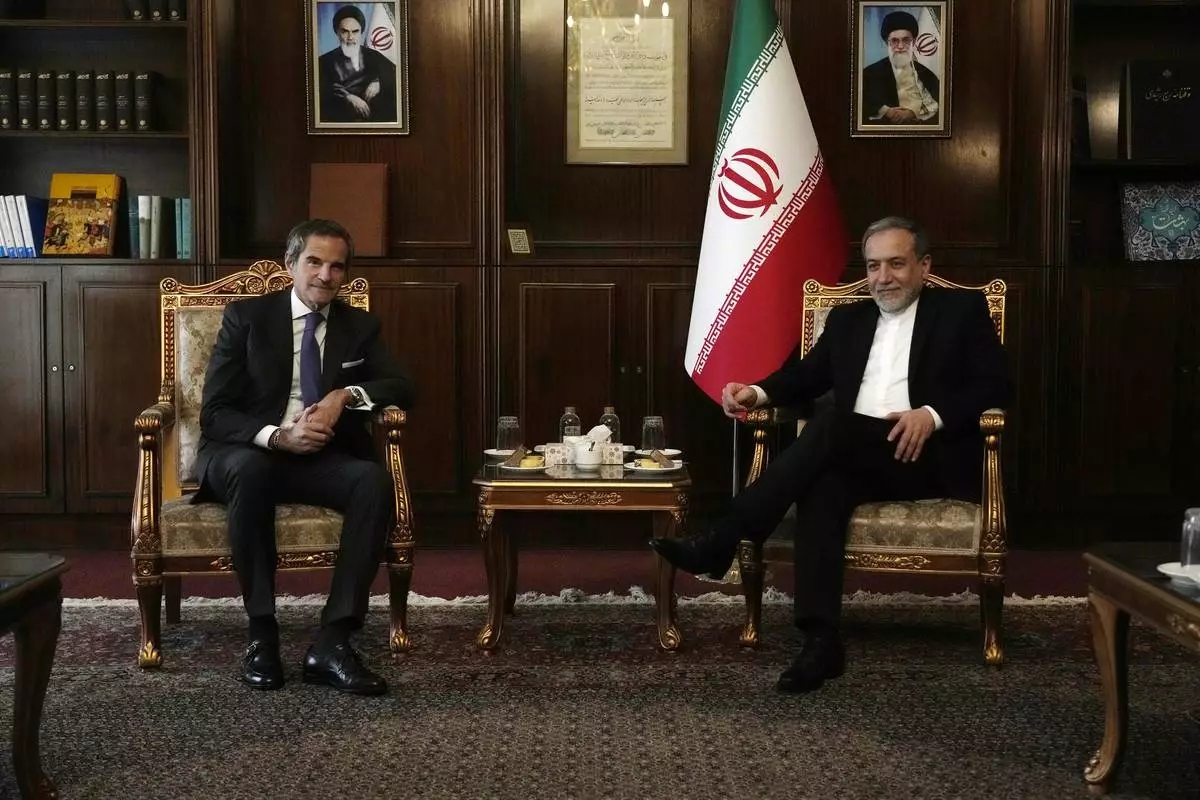
International Atomic Energy Agency (IAEA) Director General Rafael Mariano Grossi, left, meets with Iranian Foreign Minister Abbas Araghchi in Tehran, Iran, Thursday, Nov. 14, 2024. (AP Photo/Vahid Salemi)
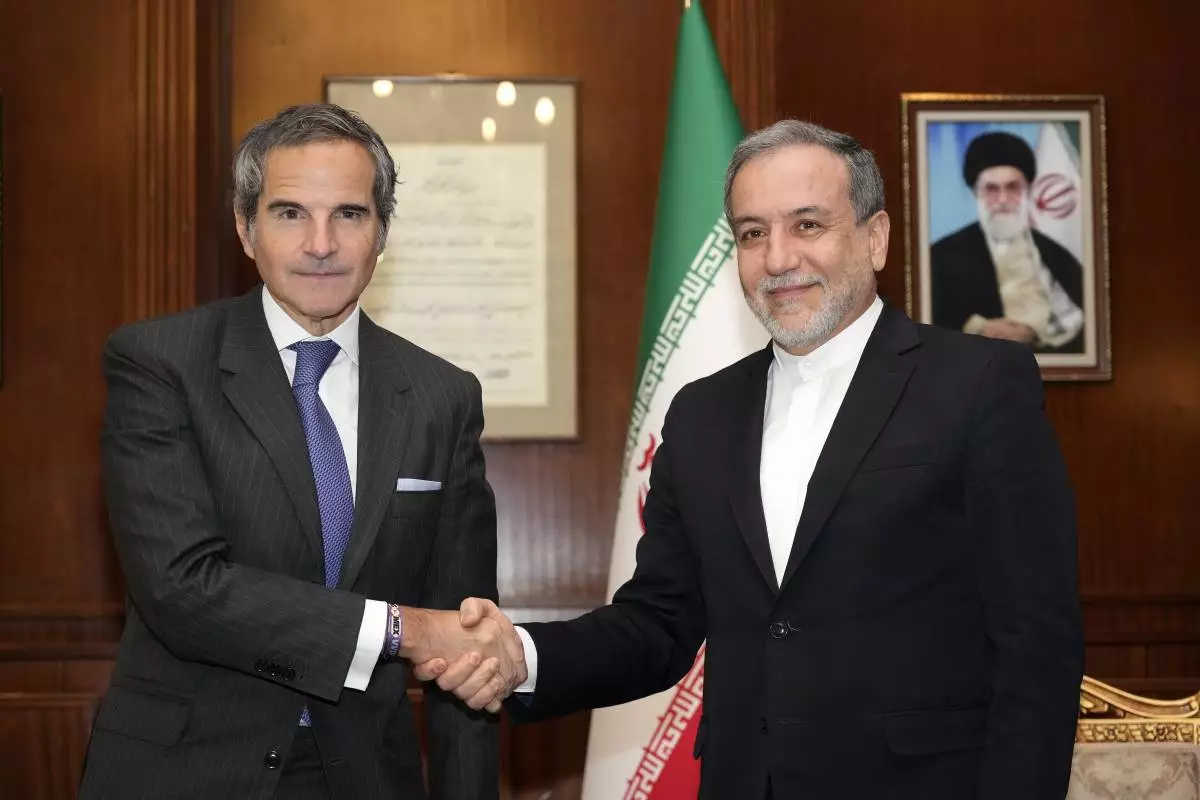
International Atomic Energy Agency (IAEA) Director General Rafael Mariano Grossi, left, shakes hands with Iranian Foreign Minister Abbas Araghchi during their meeting in Tehran, Iran, Thursday, Nov. 14, 2024. (AP Photo/Vahid Salemi)
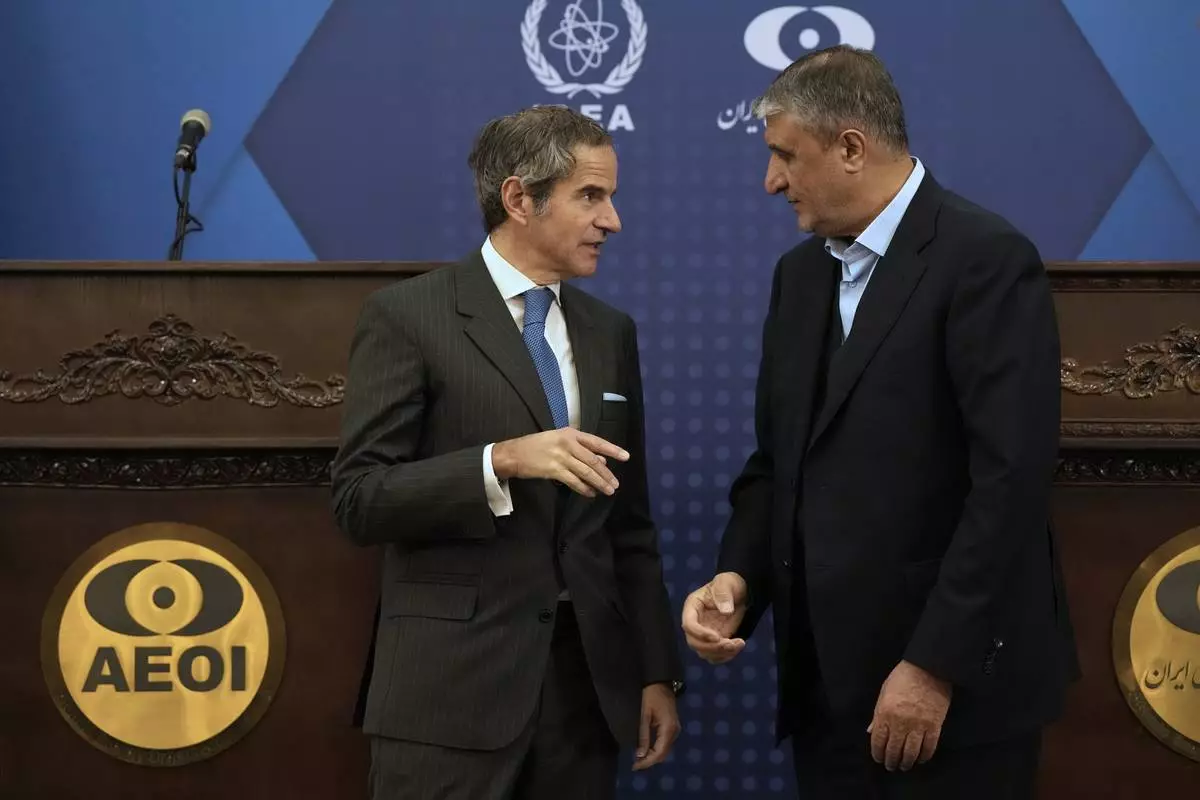
International Atomic Energy Agency, IAEA, Director General Rafael Mariano Grossi, left, talks with Iran's Atomic Energy Organization head Mohammad Eslami at the conclusion of their press conference in Tehran, Iran, Thursday, Nov. 14, 2024. (AP Photo/Vahid Salemi)



